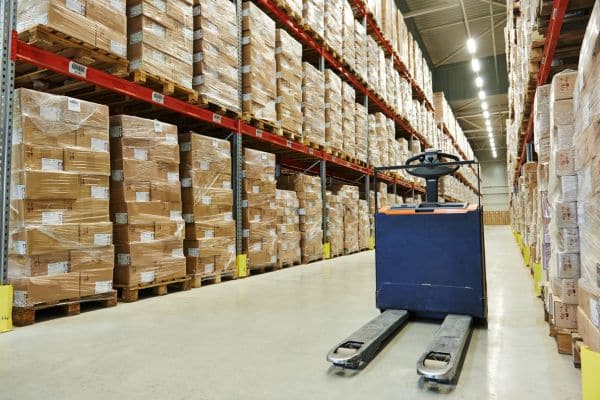From textiles and clothing to food and drink, electronics and gifts, there are specialist wholesalers for every kind of product. UK wholesalers play a key role in our retail supply chain, buying products for a low price and profiting from selling them on in bulk at a higher cost. The big question is, what would these different types of wholesale distribution businesses be worth if their owner wanted to sell?
If you are a wholesale business owner who’s ready to sell you probably want to know if your business value is comparable to others, how much your stock is worth, and where to invest in order to increase the price you can achieve.
In this blog we’ll look at the factors that can affect the value of a wholesale business, covering off product availability, diversity of customer base, IT systems, financial and stock control.
How widely available is your wholesale product?
Wholesalers tend to fall into one of two categories: general wholesalers and specialist or niche wholesalers. Take a general clothing wholesaler that stocks mens, womens and childrenswear ranges. Their products are available to buy from several other vendors, so it’s harder for them to charge more than their competitors because customers will always follow the lowest price.
Products such as clothing, which are widely available to buy, generally have a lower profit margin than those that are more difficult to get hold of. The owner of a general clothing wholesaler may think they have built a profitable business, but because they hold such high quantities of stock (just the nature of wholesale), it has a huge knock-on impact to the value of the business.
Create demand by finding a wholesale niche
On the other side of the coin we have a wholesaler specialising in a specific brand of mens’ sportswear imported from overseas. They have limited product availability, which creates market demand for their products and increases the price they can sell them on for. With few other businesses operating in this niche, this pushes up the overall value of stock held and increases the value of the business.
Finding a niche market or specialising in a limited product range is a great way to increase the value of your business if you are planning or preparing to sell. However, niching is not without its risks. If you decide to niche into a more defined area, you need to be sure there is a market for your product. Imagine purchasing a container full of product that you cannot sell! It’s important to do your market research before you make any decisions.
Before you decide to niche, please call us on 01606 535020. We will happily guide you through the benefits and risks of specialisms in the wholesale sector.
Brands that have cornered their markets
Look at what happened when each of the Harry Potter books were published. They were so popular everyone wanted to get their hands on a copy, but only selected retailers had stock which created huge demand and queues outside a small number of bookshops across the world.
The same happens every time a new Apple product launches. Apple addicts form an orderly queue outside the store to be one of the first to get their hands on the latest iPhone or an Apple Watch. The queues can last for days because each store only has a limited amount of product. After a few months, those in-demand gadgets become more widely available, stocked by supermarkets and online marketplaces, and the discounted offers begin to emerge. Then the cycle begins again with a new product launch.
Stock control and customer payment considerations
When selling a wholesale distribution business, you want stock turnover to be as high as possible. Replenishing stock items frequently shows a potential buyer that they are in demand, which adds value to your business.
When stock is sitting around for long periods, it effectively becomes a stack of cash on a shelf. It is cash that is not in the bank earning interest nor available to invest or purchase anything else with. When a potential buyer identifies stagnant stock during due diligence, this will set off alarm bells. Why is the stock lying around for long periods? Have the owners made poor decisions or have they not done their market research?
Financial administration is another important area to review before selling a wholesale distribution business. Customer payment terms, credit control and management of suppliers impact cash flow and affect the financial health of your business. A potential buyer will want to see efficient processes being followed by your team, prompt customer payments, and careful, effective management of suppliers.
IT and financial systems in a distribution business model
Often the success (and therefore value) of modern distribution businesses lies in IT systems. Investing in technology to streamline processes and simplify procedures enables a business to scale up and reach new customers.
Online systems can be used to manage stock levels, keep the finances flowing, and are invaluable when managing a supply chain or customers overseas. Taking the stress out of calculating foreign exchange rates and import duties has to be a good thing! While some form of human intervention will always be necessary with pricing decisions, using software enables a business trading overseas to respond quickly to exchange rates and limit financial lossses caused by fluctuations.
If you are thinking of selling your wholesale or distribution business and have not yet invested in IT systems, you would be wise to consider the efficiencies you could gain before placing your company on the market.
How diverse is your customer base?
If you rely on one or two major customers for most of your business and one of them becomes insolvent or left you for another supplier, how would your business fair? Over-reliance on a few customers brings risk to any type of business, and for a wholesale business the risk is twofold as you not only lose out on turnover and profit, you’ll also be left with a warehouse full of valuable products and no end customer ready to buy it.
If you hold a lot of stock of the same item, you must have a variety of outlets for that item. Building a diverse customer base will help you to achieve this.
Talk to an expert in selling wholesale and distribution businesses
At Uscita we are experienced in selling businesses in the wholesale and distribution sector. We work with business owners to build value and make their businesses more attractive to potential buyers. To explore how much your wholesale business is worth and plan your exit strategy strategy, book a discovery call with us.
Useful links
5 records you must provide when selling an IT business




